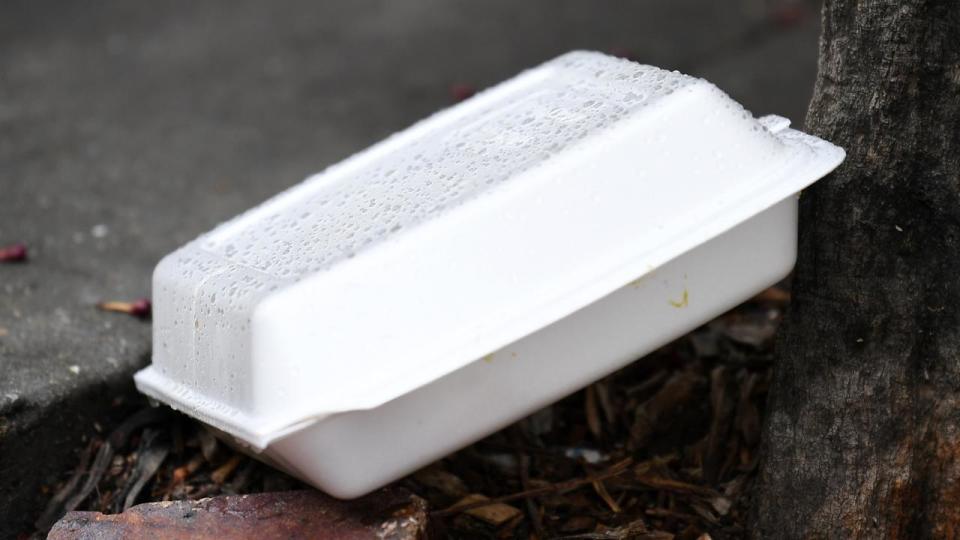Single-use plastic ban comes into effect

Several states have introduced bans on single-use plastic from September onwards, banning items such as packing peanuts and coffee cups.
From September 1, Queensland, South Australia and Western Australia will introduce the ban to varying degrees.
All three states will prohibit the sale of cotton buds with plastic stems, while both Queensland and WA will also prohibit the sale of polystyrene packing peanuts and microbeads found in personal care.

Single-use plastic plates and bowls as well as plastic pizza savers, used to prop open pizza boxes, will also be banned in SA, while WA will prohibit degradable plastics and expanded polystyrene cups and trays for raw meat and seafood.
Queensland will also ban “lighter-than-air balloons” and has introduced further requirements for heavyweight plastic shopping bags.
Environment and the Great Barrier Reef Minister Leanne Linnard said while useful, the use of plastic products had become a “growing problem”.
“We are working towards Queensland becoming a zero-waste society, where waste is avoided, reused, and recycled to the greatest extent possible and are delighted that the message about how vital it is to keep our environment free from plastic waste is reaching our community,” she said.

The state has also introduced a Container Refund Scheme that awards individuals 10c for returning eligible containers at refund points.
“Since this scheme started, more than 6.8 billion containers have been returned through over 360 refund points across Queensland with an additional 1.4 billion collected through kerbside services,” Ms Linnard said.
“Single-use plastics bans and the Container Refund Scheme have combined to eliminate an enormous amount of plastic and container litter from entering our environment and landfills.”
As of March 1 WA will extend its ban to produce bags and coffee cups and disposable plastic cup lids.

From September next year, SA will look to ban plastic produce bags, thick supermarket or boutique-style plastic bags, polystyrene plates and containers, plastic confetti, plastic balloon ties, bread tags, takeaway containers and coffee cups.
The nation’s largest retail body, the Australian Retailers Association (ARA), has thrown its support behind the move.
ARA chief executive Paul Zahra said a recent survey conducted by the organisation found three quarters of respondents would support plastic bans “despite higher costs”.
“Retailers have a strong track record of getting behind these changes,” he said.
“But we also need consumers to support this transition and we need realistic policy settings from government to make sure we can implement these bans at least cost and complexity for businesses.”


